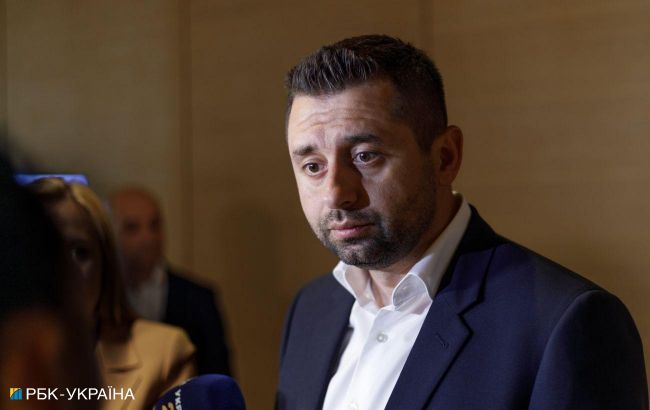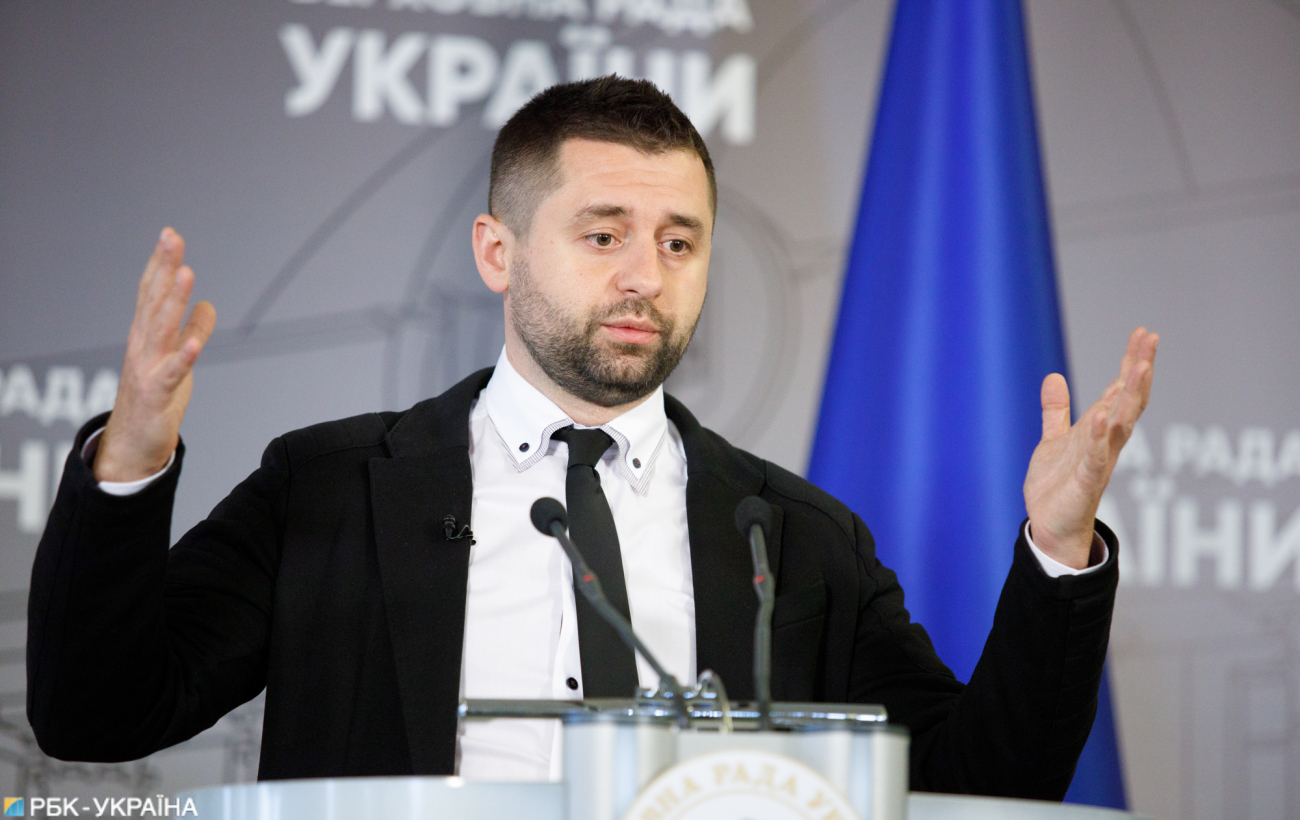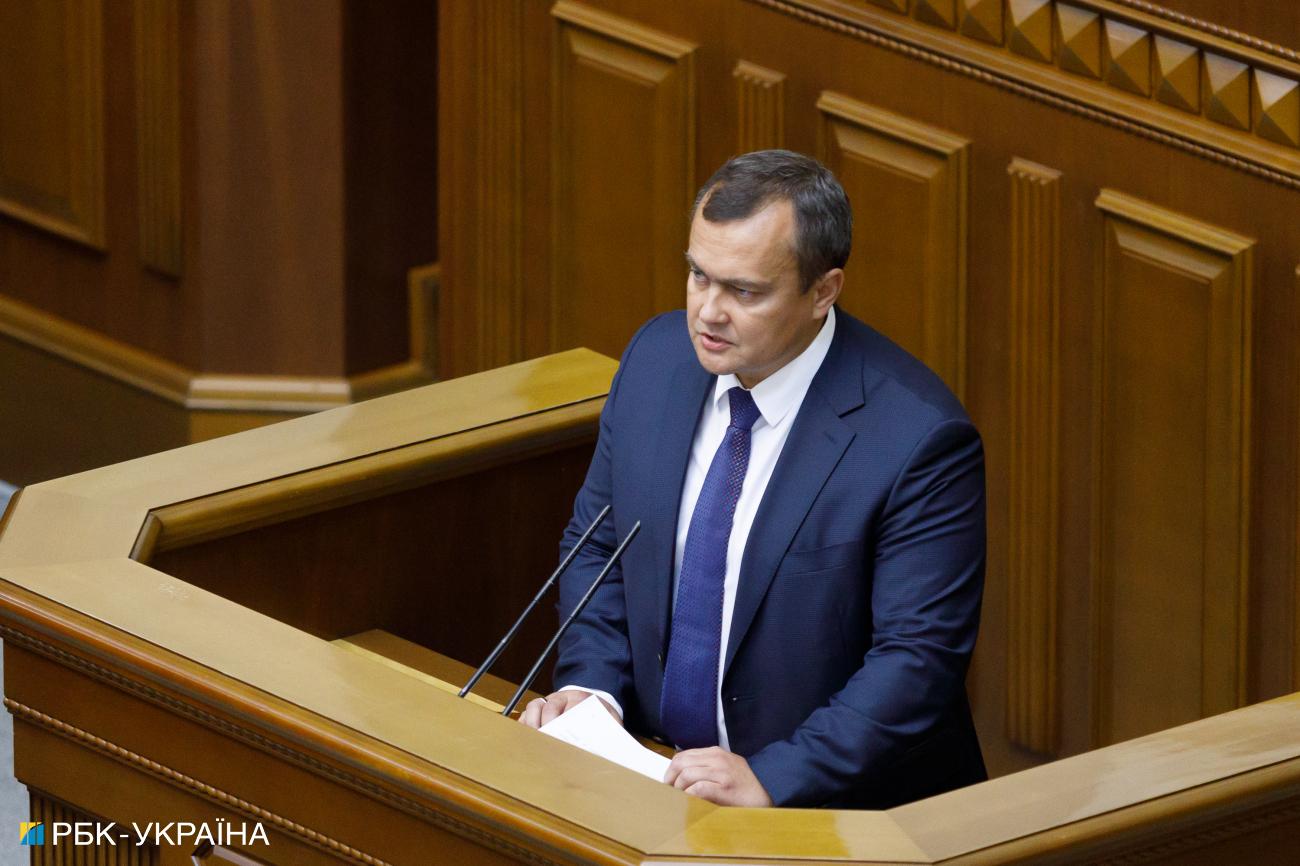Zelenskyy's party faction head: It's not very pleasant to lose people in the faction, but new times have come
 Davyd Arakhamia, the head of the "Servant of the People" faction in Ukrainian Parliament (Photo: RBC-Ukraine, Vitalii Nosach)
Davyd Arakhamia, the head of the "Servant of the People" faction in Ukrainian Parliament (Photo: RBC-Ukraine, Vitalii Nosach)
In an exclusive interview with RBC-Ukraine, Davyd Arakhamia, the head of the "Servant of the People" faction in Parliament, shed light on the reasons behind the continuous loss of deputies in the presidential party and potential imposing travel bans, as a measure to address the situation, and the necessity to assess the severity of each misconduct on an individual basis.
The ruling faction continues to be rocked by various scandals, despite the relative political calm and the lack of political activity in the country as a whole. In just the past few days, two deputies from the "Servant of the People" party, Yurii Aristov, and Andrii Kholodov, have submitted resignations, further fueling the turmoil within the corridors of power.
The most high-profile case involved Aristov. According to a journalistic investigation, he and his family were recently vacationing at an elite hotel in the Maldives. However, the departure of deputies and officials outside of Ukraine is allowed only for official purposes, such as participation in meetings of international organizations or discussions with foreign colleagues to discuss further assistance to Ukraine - not for leisure. Additionally, military conscripts are generally prohibited from leaving Ukraine, with few exceptions like transporting volunteer aid into the country.
Davyd Arakhamia, speaking with RBC-Ukraine, revealed that several of their colleagues are on the brink of expulsion from the faction, not due to scandals, but because of their unwillingness to support legislation demanded by Ukraine's Western partners, including for receiving further financial aid.
Arakhamia emphasizes that each deputy's case is considered individually, and a balance must be sought. Expelling all those who err would make getting votes for the same legislation even more challenging. The existing pro-presidential parliamentary majority (Zelenskyy's party "Servant of the People" has more than half of all parliamentary seats) would lose its status as well.

According to Arakhamia, during the entire term of this parliamentary session since 2019, a total of 17 deputies, comprising approximately 6.75% of the initial composition, have either left or been expelled from the faction.
"Taking into account the rapid pace of candidate selection for parliamentary seats, which included individuals with no prior involvement in politics, not all of them successfully passed the team assessment. Right from the start of this term, I stated that any personnel selection, even if done by a professional agency, carries a margin of error of up to 15%. Personally, I believed that if we end up with a 10% margin of staffing errors, then we have done a commendable job," says Arakhamia.
He insists that, unlike all other parliamentary factions, "Servant of the People" holds its deputies politically accountable for their actions.
"The collective dissatisfaction with the government primarily focuses on the deputies, and this probably historically evolved. It's our political tradition. I even see it from a sociological perspective. At the beginning of the full-scale war, trust in all government bodies increased significantly, even in those that were historically viewed with low trust. And even to the Verkhovna Rada (Ukrainian Parliament) when it worked in a completely closed regime. But as soon as the Verkhovna Rada opened up a bit, everything plummeted back to 2%.
We have hundreds of people who have performed feats in the field of parliamentary diplomacy and made a huge contribution to Ukraine obtaining weapons, money, and more. Yet, some deputies allow themselves to go to the Maldives while other deputies travel on official business at their own expense and negotiate matters for our country," says the head of the presidential faction.
According to Arakhamia, the historical task of this parliament is to bring Ukraine closer to the European Union by passing the necessary laws. Additionally, the deputies have to make many decisions to meet the requirements for receiving assistance from Western allies of Ukraine.
"Not all of the necessary laws are popular. For example, the bill on returning taxes to pre-war levels and reinstating inspections was unpopular, and it was difficult to gather votes for it. However, it was a condition for us to receive macro-financial assistance. Today, probably more than 60 kopecks in every hryvnia in the budget are money from foreign partners. And if our partners believe it needs to be done after consultations, where we resisted to the maximum but it was still set as a tough condition, then whether I want it or not, I have to gather votes for it, and I will do it. Of course, some want to be popular, to say they won't vote for something because they believe it is politically advantageous for them,' says Arakhamia.
Now, several deputies from the "Servant of the People" faction are on the verge of expulsion, as he reveals, precisely due to their unwillingness to vote for necessary but unpopular bills.

Yurii Aristov (Photo: RBC-Ukraine, Vitalii Nosach)
Recently, there has been much speculation in political circles about the possibility of imposing a travel ban on deputies and officials, which would make them avoid situations similar to Aristov's trip to the Maldives. In a conversation with RBC-Ukraine, Arakhamia explains that an absolute travel ban for deputies is not feasible, given that Ukrainian parliamentarians are at least participants in numerous international organizations and missions, such as the PACE, and must take part in their sessions. According to a close ally of Zelenskyy, in general, 99% of deputies travel abroad at their own expense or at the expense of the hosting party.
"I am the Head of the Friendship Group with the United States. Over the past year, I have traveled there five times and spent tens of thousands of dollars from my own pocket. Thank God, my declaration allows me to do so. I must provide a warning comment: there's no leisure in Washington; it's a continuous stream of meetings, around forty meetings in three days. Overall, this concerns more of a moral aspect, and we have expelled more deputies for violating moral principles than legal ones," says Arakhamia.
He emphasizes that each scandal involving a deputy from the "Servant of the People" faction requires a separate decision, finding a balance between punishment and the ability of the Verkhovna Rada to have a sufficient number of deputies to adopt legislation.
"History will judge not based on who expelled Aristov or not but on whether the ninth convocation of the parliament adopted the necessary laws and whether they accepted us into the European Union or not. They will evaluate whether the Rada fulfilled its historical mission during the war or not," concludes Arakhamia.

